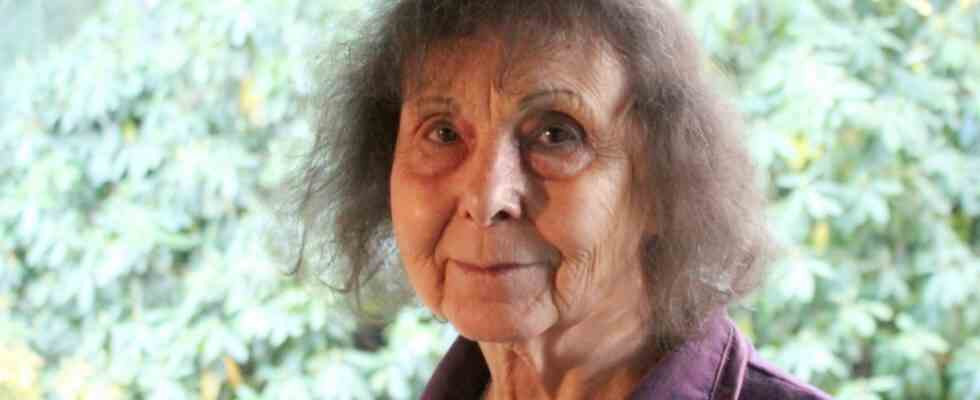Cold, shiny and hard, the voice of God cuts through the Berlin Philharmonic in mighty sound blocks of the brass. In jagged giant strides, a motif spirals upwards step by step, always drawing new, angry breath, becoming threateningly louder and louder and measuring the entire sound space with apodictic rigor and mathematical clarity. Later, “The Wrath of God”, as the 90-year-old composer Sofia Gubaidulina, who has been played all over the world, calls her latest orchestral work, will erupt with devastating violence and massive chords.
When the echo of the opening motif multiplies in the entire orchestra, puffs up and erupts in a wild frenzy, then you can almost imagine the monstrously insane Klaus Kinsky, as he first conquers the Amazon and then the whole Amazon as the megalomaniac conquistador Lope de Aguirre in Werner Herzog’s classic film wants to conquer the world, he gives himself the nickname “wrath of God”. But the wrath of God is a motif that appears again and again in the Bible, and as a rule it has bad consequences for mankind. But for a superficial theatrical thunder à la Kinsky there is no room in Gubaidulina’s music, schooled and strictly constructed on Johann Sebastian Bach and Ludwig van Beethoven, despite all its drasticness.
“The wrath of God is absolutely justified,” says Gubaidulina on the occasion of the German premiere of her work at the Berlin Music Festival. The guilt that mankind has burdened itself with due to its hubris, due to the delusion of ruling over nature like gods and elevating itself above God, is immense. The twenty-minute piece was performed in front of an audience for the first time under the direction of Gewandhaus Kapellmeister Andris Nelsons. The world premiere had been postponed several times after the late completion of the composition and lockdown obstacles and took place in 2020 as a streamed concert by the ORF Vienna Radio Symphony Orchestra. At the desk was then the Ukrainian conductor Oksana Lynivthe “Wrath of God” next Friday and Saturday in the Season opening concert of the Munich Philharmonic will conduct in the Isarphilharmonie.
Without illusions and without any glimmer of light, Gubaidulina lets “God’s Wrath” end
According to Sofia Gubaidulina, music is for her an alternative world and the most important form of human resistance against intellectual decline. Born in 1931 in Chistopol, Tartar, after studying in Kazan and Moscow, she unswervingly pursued her path to her unmistakable musical language without making any concessions to Soviet musical doctrine, despite being banned from performing for years. She was even encouraged to do so by Grandmaster Dmitri Shostakovich. Like many other composers in the Soviet Union, Gubaidulina drew strength and inspiration from a deep faith, which gives all of her works a spiritual character. She is always concerned with existential questions of faith, with guilt, reconciliation and conversion, with love and hate. In 1981 she suddenly became famous with the premiere of her first violin concerto “Offertorium” in Vienna by the violinist Gidon Kremer. After the fall of the Iron Curtain Gubaidulina emigrated to Germany.
However, “The Wrath of God” has nothing to do with the usual nirvana promise of a softened esoteric spirituality, which makes its abysmal pessimism all too clear. Gubaidulina is committed to a ruthless search for truthfulness. She listens, which now sounds esoteric, to the “sound of the universe” from the frightening state of omnipresent hatred and complete lack of connection. The wrath of God falls mercilessly on mankind because every dialogue fails. It is true that the brass section is opposed by pleadingly crawling carpets of strings, or the woodwind section suddenly becomes babbling with activity. But no development takes place. Instead, only variations, inversions, reflections or sequencing of the single theme are heard. With it, Gubaidulina alludes to Beethoven’s last completed work, to the final movement of the sixteenth string quartet entitled “The difficult decision” and the preceding motto “Must it be? It must be!”
Gubaidulina ends “The Wrath of God” without illusions and without any glimmer of light. A sound vision is conjured up in glittering colors that is typical of an apotheotic redemption. But that turns out to be a shrill bell and a dazzlingly bright sound of the eternal. It seems that there are no longer any people in these regions.

